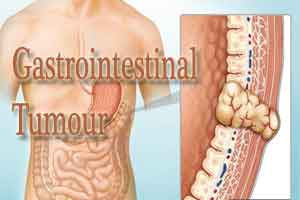- Home
- Editorial
- News
- Practice Guidelines
- Anesthesiology Guidelines
- Cancer Guidelines
- Cardiac Sciences Guidelines
- Critical Care Guidelines
- Dentistry Guidelines
- Dermatology Guidelines
- Diabetes and Endo Guidelines
- Diagnostics Guidelines
- ENT Guidelines
- Featured Practice Guidelines
- Gastroenterology Guidelines
- Geriatrics Guidelines
- Medicine Guidelines
- Nephrology Guidelines
- Neurosciences Guidelines
- Obs and Gynae Guidelines
- Ophthalmology Guidelines
- Orthopaedics Guidelines
- Paediatrics Guidelines
- Psychiatry Guidelines
- Pulmonology Guidelines
- Radiology Guidelines
- Surgery Guidelines
- Urology Guidelines
Gastrointestinal tumours associated with higher mortality

New York : Researchers have determined that certain gastrointestinal tumours are more deadly than previously assumed.
The finding, published online in the Journal of Gastrointestinal Surgery, showed that GISTs that are less than two cm cause 12.1 percent mortality rate for five years.
Also, up to 30 percent of patients have GISTs less than two cm in size, or slightly more than half an inch, the researchers noted.
More than 79 percent of patients have localised disease of GISTs, while for 11.4 percent the disease can spread to other regions. Previously, researchers did not expect any disease to have spread.
"While GISTs are rare, we have found that certain groups of these tumours result in a much higher mortality than expected," said Jason Sicklick, assistant professor at University of California-San Diego in US.
For the study, the team identified 378 patients with malignant GISTs of less than two cms between 2001 and 2011.

Disclaimer: This site is primarily intended for healthcare professionals. Any content/information on this website does not replace the advice of medical and/or health professionals and should not be construed as medical/diagnostic advice/endorsement or prescription. Use of this site is subject to our terms of use, privacy policy, advertisement policy. © 2020 Minerva Medical Treatment Pvt Ltd